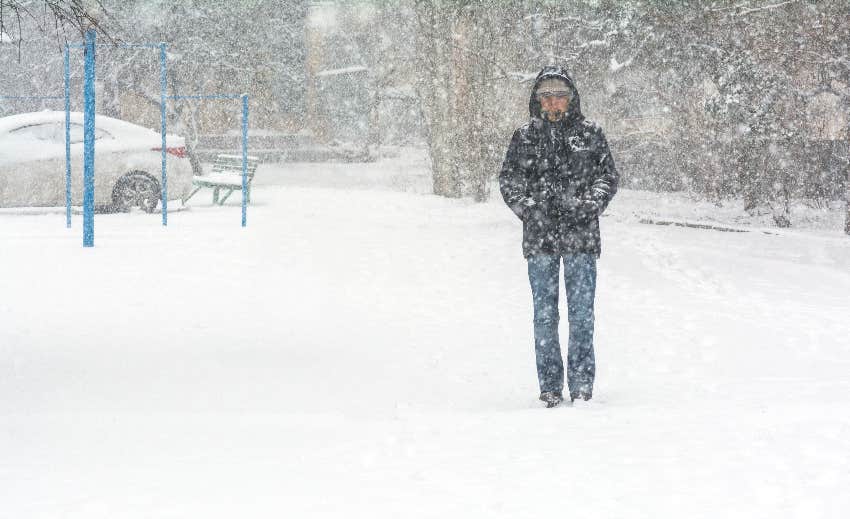As An Exhausted Gen-X Worker, I'm Glad Gen-Z Doesn't Care About Loyalty — 'We Were Chumps Who Got Scammed'
Loyalty to a particular company is a scam, and I'm glad Gen-Z realizes it.
 Roman Samborskyi | Shutterstock
Roman Samborskyi | Shutterstock Editor's Note: This is a part of YourTango's Opinion section where individual authors can provide varying perspectives for wide-ranging political, social, and personal commentary on issues.
My dad worked for the same company almost my whole life until he retired. Yes, he was actually able to retire — even though he was always an hourly blue-collar employee — because he is a Boomer.
It wasn’t a bad deal. He worked his tush off, the company paid him for every hour he was there, and he was eventually able to retire. True, there was a highly contentious 1976 strike that I will never forget, but for the most part, both sides got what they needed from each other.
As a burnt-out Gen-Xer, I got the message: Show loyalty to work, and you'll be rewarded for it. That was a scam and I'm glad Gen-Z realizes it.
I worked and didn’t protect my time at all, which I started thinking about when I read Toni Crowe’s excellent piece, Companies Are Having a Hella Time Getting Younger Generations to Work Unpaid Overtime.
She notes that Millennials and Gen-Z employees rrefuse to make themselves available to their employers during their time off, and I’ve noticed the same thing. The work ethic of the younger generation is markedly different from what I’ve seen.
 fizkes / Shutterstock
fizkes / Shutterstock
Younger generations protect their time and deprioritize loyalty to a specific employer far better than Gen-X did, and good for them.
Boomers would do anything for their work, and our Gen-X generation blindly followed their examples. We thought we’d also be appreciated, but we were not. Many people in my generation know what it’s like to perform thousands of hours of unpaid work and then be kicked to the curb anyway.
We feel betrayed when this happens. “I cut my vacation short for you! I took calls when I was hosting guests for you! I performed work while on vacation in another country for you! I missed time with my kids for you! What do you mean, you’re done with me now?”
Obviously, I didn’t say anything like that when I was laid off from my newspaper job in 2015, but I sure thought it. I felt stung and betrayed as if I had been cheated on by a lover whom I’d been supporting for decades.
Because here's the scam: So many Gen-X workers went all-in on work, were loyal to their employers, and never reaped any benefits from it.
I could tell so many stories. When I visited my now-husband in the Netherlands, I still wrote and emailed in a weekly column. I got a kick out of writing one of them the day “after” it ran, thanks to the magic of the time difference, and wrote about that.
If big news happened on a day I was off, I dropped everything and got right to the newsroom. I took work calls at all hours of the day and night. There was a huge crime story on a weekend once, and my staff had already put in 40 hours and I didn’t have an overtime budget to pay them more, so off I went to cover it myself.
I brought along my unpaid husband as a photographer. I roped in my husband a lot. He photographed the EF-4 tornado that hit us a decade ago when my photographer was in Chicago and unable to return in time to do it. He did the work for free.
He helped me put together the janky old newsroom desks in our new location after the company sold the historic building we’d occupied for 100 years. (Yes, the company expected me to reassemble all the desks. They were ancient and falling apart and no two were alike. It was a ton of work.) It took us all weekend. We did the work for free.
Often, the internet at work went down. It was always a scramble. My home internet served as our backup. One especially stressful night, the internet went down just as we were starting our nightly production, and it stayed down. Of course, not meeting our deadline was not an option, even though we had not been provided with reliable internet.
I disconnected my laptop, ran to my nearby home, and used my home internet to download AP stories, obituaries, weather forecast info, etc. Then I rushed back to work, reconnected to our system, and distributed all the information to everyone who needed it.
Then they’d tell me what else they needed as far as sports stories or whatever, and I’d do another run. It was exhausting and I felt irritated that my own personal internet was our backup system. But by some miracle, we got the paper out on time.
At one point, the company decided to change our computer system, switch the programs we used, and fire the editor all at the same time. For a couple of weeks, I corralled all the chaos as city editor before being named as editor. It was a lot.
Once I worked from 6 a.m. one day until 4 a.m. the next day, straight through. I was barely able to find time to pee in that stretch. It was hard. Everything got done, and I’m proud that it did, but it only happened because I made it happen.
We worked through a blizzard so bad that after we finished, the last paginator and myself — I’d sent everyone else home — had to struggle on foot through drifts so deep we could barely get through them.
 Vastram / Shutterstock
Vastram / Shutterstock
No vehicle short of a snow plow could have gotten through the streets. The drifts were past my waist.
Panting and sweating but also freezing, we managed to make our way to my house, where I cooked midnight spaghetti for us. She had to sleep at my place.
Almost nobody saw that paper, but we had to officially publish it or we’d have to refund all the advertising, which would have meant losing thousands of dollars. The company expressed zero appreciation.
The newspaper industry was imploding thanks to the internet destroying its business model, so my experience was no doubt more extreme than that of workers in most other fields. Still, all of us working there gave it our all, trying to keep the inevitable from happening. And we did impeccably good work under impossible circumstances.
Under my leadership, the paper was recognized for excellence by our state press association every year. One would think all this would count for something. But it didn’t — of course, it didn’t. And many Gen-X workers can tell similar tales.
Just as the Gen-X generation learned our work ethic by watching our parents, younger generations have heeded caution by watching ours.
Here’s what it boils down to: “My parents missed a lot of time with me when I was growing up because work was always encroaching on family time. And then they lost their jobs anyway. I’m not falling for that.”
Good for them. It’s not really “shirking” when you’re providing the appropriate amount of work for your pay.
Nobody was happier than me when, post-pandemic, corporations had to start courting employees and paying them more. (They didn’t court older workers, of course. I eventually gave up on getting hired and went all-in on freelance.) I laugh when I drive by the sign announcing my local Taco Bell is paying $15 per hour.
That’s awesome — those people at Taco Bell are making more than my reporters or paginators or photographers did. Because I worked so much unpaid overtime, they are making more than I made as editor of a daily paper and when they leave work, they don’t have to worry about it again until the next time they clock in.
I worked fast food as a student so I know it can be harder and more stressful than people seem to give them credit for but one thing I can say about it is when you're off work, it’s out of your head.
Unless you’re in management, you’re not taking emergency work calls at home. “The napkin dispenser is empty and nobody here knows where the napkins are kept! You gotta come in and save us!” Nope.
For a couple of years, I worked another job, mostly with millennials. I quickly learned it was not safe to get between them and the door at 5 p.m. because they’d trample you. I had no problem working past give. if I were in the middle of something, but I was the only one there who felt that way.
 mavo / Shutterstock
mavo / Shutterstock
Initially, I thought badly of them for it. But they were right and I was wrong. It made no sense for them to donate extra time like that.
In retrospect, it bothers me that I gave so much of myself away and I'm glad Gen-Z is devaluing employer loyalty and enforcing stronger boundaries around work-life balance.
I’m irked that I didn’t take all my vacation time because they didn’t provide enough workers to cover me. I’m irked that I had to hit up my husband to help me sometimes.
I’m irked that once when my son was young, I called him and told him there were various leftovers for his dinner but I’d have to work late again. My daughter was at college and my husband was working a late shift at that point, so my son was on his own. And then I called him later and asked him what he’d eaten, and he answered, “A can of frosting.”
At that point, I left work and cooked the kid a real dinner, which I served around 9 p.m. Ridiculous.
Employers can’t have it both ways. Either employees are valued and will reap the rewards of all their work and sacrifice, or they’ll face employees who feel zero loyalty and won’t do anything more than the duties they are explicitly paid to perform.
My generation of chumps was screwed, and I’m still plenty irked and bitter. Generation Alpha, I hope you’re paying attention.
Michelle Teheux is a freelance writer, journalist, and former newspaper editor who writes about her experiences abroad.
